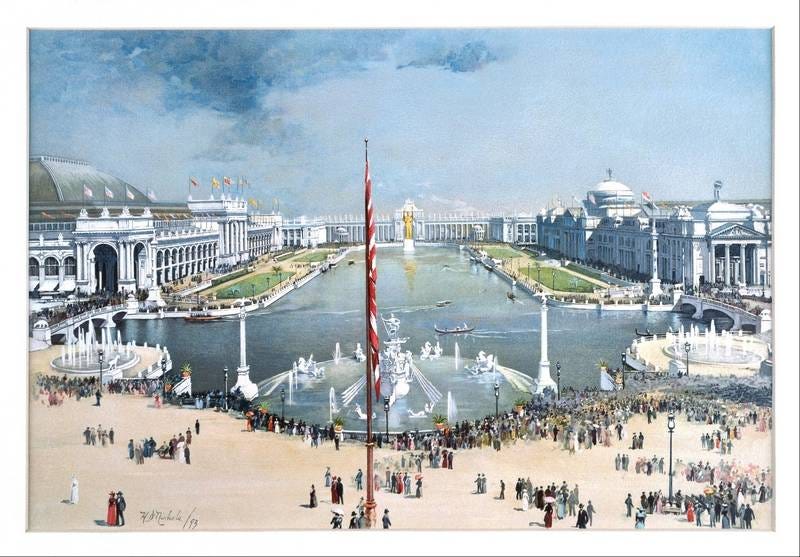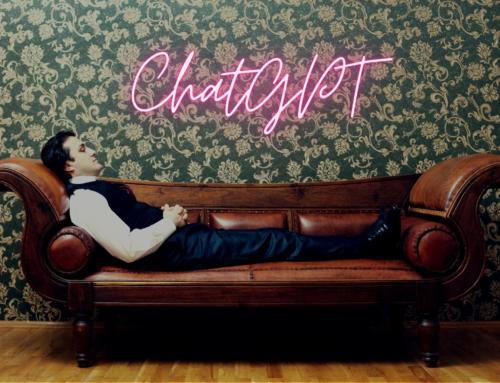I spent summer 2017 in the tranquility of northern Westchester, the fast route to tranquility when you live in New York City. I had two personal goals besides enjoying time with my family. First, I wanted to catch up on my reading. I set a goal of at least one book per week for myself. Next, I planned to start working on my blog — CEOPLAYBOOK. I accomplished both.
(I also wanted to get some exercise, use the swimming pool, run through the grass with my daughter, barbeque, just chill with wine in hand, and have pleasant conversations with family and friends. I got those done too, but, that is not the subject of this article. I’ll discuss the importance of balance and downtime in the future.)
I got a lot out of my reading this summer and would like to share the quick list of books I enjoyed with some notes, as well as ratings.
(If you’ve read any of these, please let me know what you thought!)
Some Thoughts on Reading
I encourage every CEO to read as much as they can. Reading is a breath of fresh air for the mind of a busy CEO. It offers the opportunity for free-thinking, learning, and exploring life outside of your day-to-day firefighting.
The very act of reading makes you a better leader. Over the years, I have read several books that have helped me become a better CEO.
I have been working on increasing the volume of books I read in a year. I am a slow reader. Believe it or not, I find myself playing the words in my mind and at times drifting off into some fantasy land. I have tried everything to get around this and nothing seems to work.
This summer I tried something new. When I download my books to my kindle app (my preference), I also download the audio version if it is available. Then as I read the book, I play the audio version at 1.5x — 2.0x speed!
I get through the books in half the time. My retention and comprehension are very high. It must be from years of attending meetings via an audio conference bridge — as a traveling CEO.
I particularly enjoy reading non-fiction, like books about entrepreneurs telling their success stories from beginning to end. I love the gritty ones.
I read lots of business books as well, that introduce new frameworks for hiring people, building brands, developing high performing teams, branding, amazing customers, communications, and leadership. I am steadily trying to learn new ways to improve my CEO skills.
I also relish “brainy” books. Books about innovation, science, psychology, history, and new findings regarding known subjects.
It all plays into my passion for lifelong learning.
The Reading List — with Notes and Ratings
Below, you’ll find my 1–5 rating after each description. A “1” means I wasted my time. A “5” means it was excellent, I learned a ton and it is among my best books list — and I’ll probably recommend it a lot.
Sapiens, Yuval Harari — My CEO coach suggested I read this one. It is a brilliant book about the history and evolution of the dominant species on the planet, homo-sapiens. It is a thought-provoking, non-racial book elegantly written for people who love history and wonder about the future of our species. Where are we going? To understand our future, we must understand our past. We are now at a new frontier that represents an entirely new level of evolution. This book is a must-read. One of my favorite parts is about how one of our extraordinary traits is our ability to tell stories. This unique ability afforded us opportunities to become who we are today — at the top of the world. [5]
The Four Steps to The Epiphany, Steve Blank — Blank is considered the father of the lean start-up movement. 11 years ago, before there was such thing, I started a company and used similar methods to those outlined in this book to do “customer development.” It is the process where you figure out if your product solves a problem and what it takes to sell it. Steve goes further to discuss all phases of a business and how your teams and focus change over time. All founders and first time CEOs should read this. One of the most valuable parts of the book is a framework for determining the type of company you are creating. My favorite line is, “ ‘Build it and they will come,’ is not a strategy; it’s a prayer.” [5]
“The body is strong, the mind is weak.” — Indian Yoga Master
Predictably Irrational, Dan Ariely — Once on a trip to India, my wife and I met some yogis, and they shared some sage advice. One line that sticks with me to this day is, “the body is strong, the mind is weak.” Dan Ariely is the master at explaining exactly how weak our minds are and how this weakness affects our decisions. This book will blow your mind. I mean really. [5]
Shoe Dog — When I was in college I spent every summer in Beaverton, Oregon not too far from the gleaming, sprawling, secretive campus of Nike. This book tells the gripping story of its founding and rise to the pinnacle of the global shoe, athletics, and general sports markets. Phil Knight emerges from his cocoon to tell an incredible story about grit, passion, and love. You won’t be able to put it down. [5]
The Second Machine Age, Erik Brynjolfsson — With all this talk of AI, Machine Learning, Robots, Alexa, Siri, Google Assistant, and the wiping out of many jobs, one needs to know why these things are so important. Well, this book not only gives you that foundation, but it provides you a Ph.D. in it! You get schooled here and scared too. [5]
Leading at the Speed of Growth, Katherine Catlin — I re-read this book because it is one of the best books for CEOs. It offers up a roadmap for your companies’ different stages of growth. At each stage your company changes, the people you need change, and you must change. Katherine explains precisely how in detail. It comes from her extensive experience working with and coaching CEOs. She is also a partner at Catlin & Cookman Group which is, in my opinion, the best CEO forum hands down. Read it, every year. I know I will. [5]
The Billionaire Who Wasn’t , Chuck Feeney — Feeney is a Cornell graduate, co-founder of “Duty Free Shoppers Group,” and a model for modern day philanthropy. You could pass him on any street in the world and not think much of him. But, if you knew he anonymously gave away his entire wealth (totaling well over $7 Billion) through his foundation, Atlantic Philanthropies, you might hug him. This book is his story. You won’t be able to put it down, especially if you are a Cornellian, Irish, Vietnamese, survived cancer, or a New Yorker. [5]
Who: The A-Method for Hiring, Geoff Smart — If you are hiring people now, stop and read this book before you make another hire. It will teach you how to find and pick the best people in every role. I have personally used it in my companies, and it works. (I offer additional thoughts on hiring in another blog here. ) [5]
The Devil In The White City, Erik Larson — This happened to be in the house we rented this summer. It is awesome. I was not familiar with creative non-fiction. I am now hooked on this genre and Larson. The book tells the story of a serial killer during the Chicago world’s fair. It is a real history lesson as well told through the eyes of two handsome, intelligent, fellows that spans from Chicago to Northeast. I think I might have skipped meals while reading it. I hope I can write this vividly someday. [5]
Work Rules!, Laszlo Bock — I have never highlighted a book so much in my life. I even wrote a summary of the book. It offers a gold mine of helpful approaches to building a great company, one person at a time. What is surprising is how simple the ideas are and how little they cost. If you are a founder, read this at least twice. (Laszlo is now the co-founder of a Humu.) [5]
How Google Works, Eric Schmidt — Schmidt came to Google before he thought it was worth his time. What he found was a company that changed his view on great companies. Schmidt was the perfect CEO for “the Google, “ and they were perfect for him. He does an elegant job of explaining what makes Google special and what has driven its growth. One of the nuggets from the book: before embarking on any project, they always ask, “What could be true in five years?” [4]
High Output Management, Andy Grove — Grove is my idol, so I have read all his books. Its an oldie but goodie about management. It simplifies the process so anyone can understand what their role is as a manager — and how to master it. It brought back fond memories of my time at Intel. [4]
The Everything Store, Brad Stone — A beautifully written book about everything Amazon. The title is fitting given it unveils the original business plan that Bezos wrote while he was still at DE Shaw. Amazon is fast approaching becoming the “everything store,” and this book does a great job of explaining how they’ve work to get there. It was not all easy. It took a level of business acumen and ruthlessness that is unsurpassed. Read it and learn how Bezos’ mind works and some striking personal nuggets. [4]
The Elements of Style, William Strunk, Jr. — I re-read this book. It’s a classic cookbook for improving your writing and grammar. It offers simple and easy to follow steps for enhancing your prose. [3]
Hooked, Nir Eyal — We all have habits. Some of us run. Some of us eat popcorn while watching a movie — every time. (That’s me.) There is a science to how habits form and that same science, when applied to creating products, is irresistible. Can’t put your iPhone down because you must check Instagram one more time since the last 9 seconds? This book explains why and teaches you how to build products that do the same. I also think it is a great evaluation tool for determining whether a product has the potential to become like “crack.” [3]
The Fourth Industrial Revolution, Klaus Schwab — A quick read about similar topics to those contained in “The Second Machine Age.” Schwab takes a macroeconomic view — looking at some of the deficiencies in our global systems in the coming revolution. He brilliantly summarizes challenging topics for business leaders and heads of sovereigns. Klaus also demonstrates how quickly everything digital is moving. The speed, as he explains, is something unlike anything in previous revolutions. It creates a host of unobvious challenges. [3]
Hillbilly Elegy, JD Vance — I never got to it during the election. I am not a fan of Trump, but this book explains why so many people in this country voted for him. This book is about some of those people and their lives. It is well written and was quite eye-opening for me. [3]
Guerrilla (Social Media) Marketing — The DropBox guys put me on to this after I heard them mention it in a podcast. It is a handy read for anyone looking to learn how to do a lot with nothing. Some pretty neat ideas in here. [2]
18 books in 17 weeks — it was an enlightening (early) summer!
Now that I’ve discovered what helps me read faster, I’m hoping to continue this habit — but I need your help!
What books have you read and re-read, highlighted and bookmarked, and find yourself recommending to others? (Comment below.)
Let me know, and you might just see them featured here in the future!
If you are a CEO, read often. Trust me; it will up your game. Set a goal for yourself and beat it.





